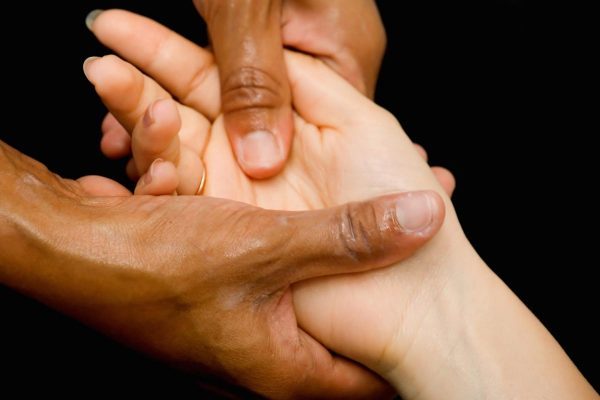When emotional trauma remains unresolved, it can cause deep-seated mental concerns. According to Dr. Gabor Maté, an expert on addiction, people often struggle with “wounds in the past,” especially during their childhood years. These emotional wounds usually continue to negatively affect them throughout their lives.
Although this can be hard to accurately determine through medical research, this makes sense intuitively. Once a traumatic experience is pinpointed and eventually confronted, people can experience drastic improvements in their lives, supporting the idea that trauma has negative repercussions.
But when it comes to physical illness, we often believe a “strictly material causality.” With the know-how and tools, medical experts can figure out which germ or deficiency has caused your illness. However, some studies are looking into the idea that “emotional trauma can also cause the manifestation of physical illness.”
How do you define trauma?
While most people associate major life events with trauma such as sexual or physical abuse or seeing combat, in reality, it is often much more subtle than this. Even “seemingly less significant events” can leave a lasting impression on a person. (Related: Big Trauma Vs. Little Trauma: What’s the Difference?)
Psychologist Dawson Church, Ph.D. presents a more detailed definition of a traumatizing event. She outlines four key components: it is “perceived as a threat to the person’s physical survival,” it “overwhelms their coping capacity, producing a sense of powerlessness,” it “produces a feeling of isolation and aloneness,” and it “violates their expectations.”
Lissa Rankin, M.D., talked about how “a link is formed between this type of trauma and the manifestation of physical illness later on in life.” She explained that emotional changes can eventually cause physical changes. Rankin elaborated that you’re not only imagining being sick. You’re physically ill, but the changes you’re experiencing could be due to unhealed trauma and the stress, anxiety, and depression that comes with it manifests in ways that make you susceptible to physical illnesses.
In Rankin’s book, Mind Over Medicine: Scientific Proof That You Can Heal Yourself, Rankin also discussed the issue in depth. She cited a study that proves a “connection between trauma and certain illnesses.” The 1990 study, where Kaiser Permanente and the U.S. Centers for Disease Control (CDC) collaborated on the Adverse Childhood Experiences Study to monitor 17,421 patients, gave way to more than 50 peer-reviewed scientific articles. In the study, patients were interviewed to identify whether they had experienced any of these ten traumatizing events in childhood:
- Emotional abuse
- Emotional neglect
- Household mental illness
- Household substance abuse
- Incarcerated household member
- Mother treated violently
- Parental separation or divorce
- Physical abuse
- Physical neglect
- Sexual abuse
The results of the study showed that most people experience childhood events that traumatized them, and at least two-thirds of the participants went through one traumatizing childhood event. The findings were then compared with the physical health of the interviewed patients, and researchers discovered a dose-response. These traumatizing childhood events were connected to adult disease in all categories: cancer, heart disease, chronic pain, autoimmune diseases, bone fractures, high blood pressure, obesity, diabetes, depression, smoking, and suicide.
The average age of patients in the study was 57 years old, proof that childhood trauma might have a delayed effect on the body. An event from 50 years ago could eventually cause an illness in the present, and “the more Adverse Childhood Events an individual reported, the sicker and more resistant to treatment they were.” This study is a good reason to start taking our mental and physical health more seriously. Various health crises could be connected “to how the mind and body work together to create the complete being.”
How can you recover from a traumatic event?
While dealing with trauma requires the assistance and diagnosis of a medical professional, these tips can also help individuals experiencing traumatic stress:
- Recognize your feelings – Remember that anger, guilt, and shock are normal reactions to trauma and that by accepting them, you are one step closer to healing.
- Try to be more active – Exercising can help you burn off adrenaline and it releases feel-good endorphins that will boost your mood.
- Talk to your loved ones – Spend time with your family and friends. If you don’t feel like talking, do “normal” things with them like watching a movie or playing board games.
Read more articles about mental and physical health at MindBodyScience.news.
Sources include:
WakingTimes.com
HelpGuide.org





















